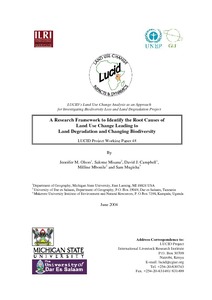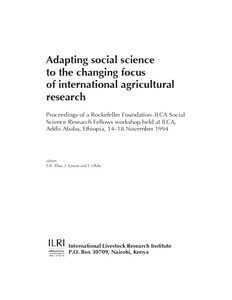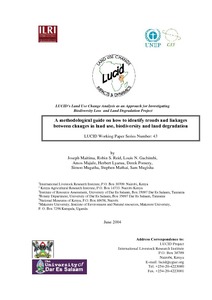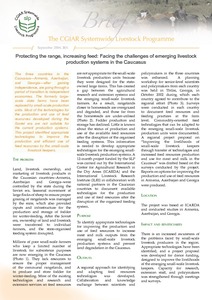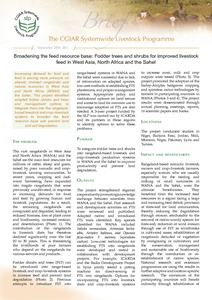Location
Vision, mission and strategy
ILRI's strategy 2013-2022 was approved in December 2012. It emerged from a wide processof consultation and engagement.
ILRI envisions... a world where all people have access to enough food and livelihood options to fulfil their potential.
ILRI’s mission is... to improve food and nutritional security and to reduce poverty in developing countries through research for efficient, safe and sustainable use of livestock—ensuring better lives through livestock.
ILRI’s three strategic objectives are:
- with partners, to develop, test, adapt and promote science-based practices that—being sustainable and scalable—achieve better lives through livestock.
- with partners,to provide compelling scientific evidence in ways that persuade decision-makers—from farms to boardrooms and parliaments—that smarter policies and bigger livestock investments can deliver significant socio-economic, health and environmental dividends to both poor nations and households.
- with partners,to increase capacity among ILRI’s key stakeholders to make better use of livestock science and investments for better lives through livestock.
This is ILRI’s second ten-year strategy. It incorporates a number of changes, many based on learning from the previous strategy (2000–2010, initially produced in 2000 and modified in 2002), an interim strategy (2011–2012) and an assessment of the external and internal environments in which the institute operates.
Members:
Resources
Displaying 826 - 830 of 1152A research framework to identify the root causes of land use change leading to land degradation and changing biodiversity
Adapting social science to the changing focus of international agricultural research. Proceedings of a Rockefeller Foundation-ILCA social science research fellows workshop
The papers in this proceedings provide a cross section of science research in international agricultural research centres (IARCs), where the objectives and research foci within the Consultative Group on International Agricultural Research (CGIAR) have changed substantially in the 1990s. The book is divided in five sections. The first explores priority setting and research evaluation of commodity programmes. The second looks at institutional issues. The third explores issues related to commodity policies and food security.


